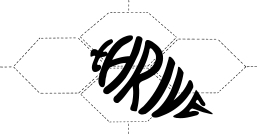
It is said that we are living in a VUCA world (Volatile, Uncertain, Complex and Ambiguous). It is also said that the pace of change is accelerating as never before.
This may be bad news for individuals or organisations who have yet to feel the impact of change.
In recent times, we’ve seen dramatic transformations in how value is distributed within industry sectors – the appearance and growth over the last few years of Airbnb, WhatsApp, Uber, Facebook and Amazon has already shaken up accommodation & tourism, mobile messaging, public transportation, and publishing and there are countless examples of possible disruption appearing over the horizon.
Higher education professionals are already facing unprecedented external pressures and disruption and this is part of an on-going trend globally. But how we respond as individuals to change against that backdrop is complicated by the overpowering emotions we experience when faced with the unexpected.
Change is most often associated with loss and as humans we are programmed to be suspicious of change that affect us as individuals – where there is a perceived loss of status, loss of security or lingering uncertainty, interpersonal relationships can be impacted very quickly by overextended, irrational, and defensive behaviour.
Anyone who has been through a transformational change programme will know that it is a highly emotional time, and that one of the hallmarks of an emotionally intelligent leader is the ability to reshape the emotional landscape of an uncertain, often complex situation, where there is no single right answer.
In addition, in this new VUCA world, change is more likely to occur on a revolutionary scale with little time to reflect or plan. Few people or institutions choose revolutionary change of their own accord. The need arises out of the socio-political and/or economic dimension giving little alternative but to ride the crest of change as best we can.
The #1 leadership quality
We are all leaders, whether we are aware of it or not. Someone somewhere will be looking to us for guidance, advice or inspiration. It is for this reason that the most fundamental leadership quality that underpins everything else is self-awareness.
It is only through self-awareness that we can achieve self-mastery. And through self-mastery, we have the chance to keep listening, without the need to resort to defensive patterns of behaviour that risks the contagion of negative emotions.
Many leaders have travelled up the organisation as a result of their functional expertise. The more senior they are, the less likely they are to receive meaningful feedback from those around them, unless they are already self-aware and enlightened enough to foster a culture of candour, a quality that can disappear in times of change in even the most successful organisations.
That’s where a programme designed to explore self, and understand others comes in, so that we may best navigate transformational change with compassion, respect for a diverse range of opinions and a high level of cooperation and shared purpose.
So how are we to raise our awareness of ourselves and our likely behaviour under pressure in a way that will support our emotional agility and our ability to lead our organisations through change?
Using Lumina Spark
Lumina Spark is one of a new generation of professional development tools supporting individuals and teams to work more effectively with others. Individuals like it because it gives a clear, jargon-free perspective of their personality. Most importantly it provides valuable insights into how individuals behave when under pressure or when over-extended, without judgement and with respect for our individual values.
It helps with communication, which is a vital component in successful change, and with understanding how best to diffuse overextended behaviour that may arise with difficult challenges.
The Spark model is based on decades of grounded, empirical and scientific Big5 research; the traits measured and overall structure of the model makes use of the latest research unlike many other tools, there is no stereotyping. It embraces paradox in that it independently measures the level to which each individual has opposite, competing and (seemingly) contradictory aspects in their personality e.g.:
- their level of ‘introversion and extroversion’
- the level to which people lead with head and heart’ – ‘have vision’ and ‘execute’.
A version of this post first appeared on my LinkedIn profile.
